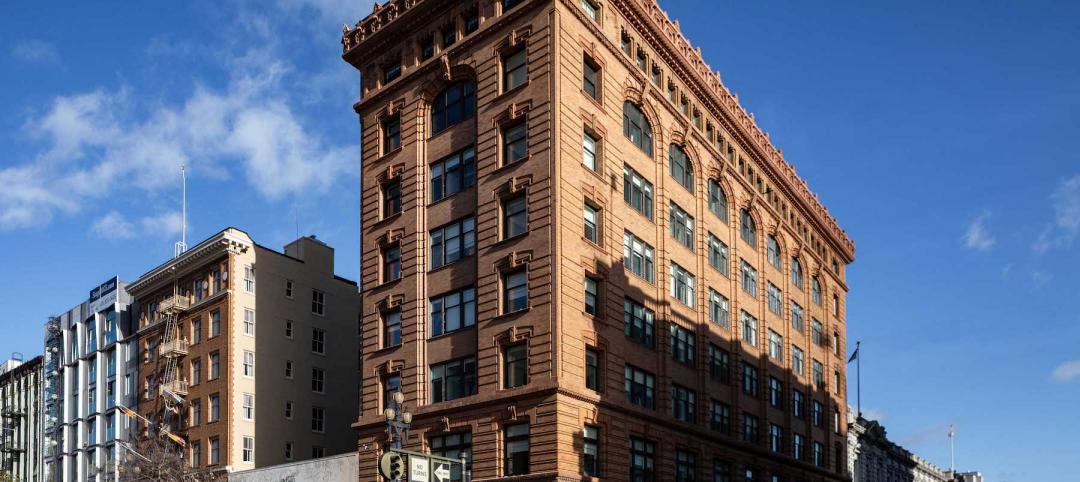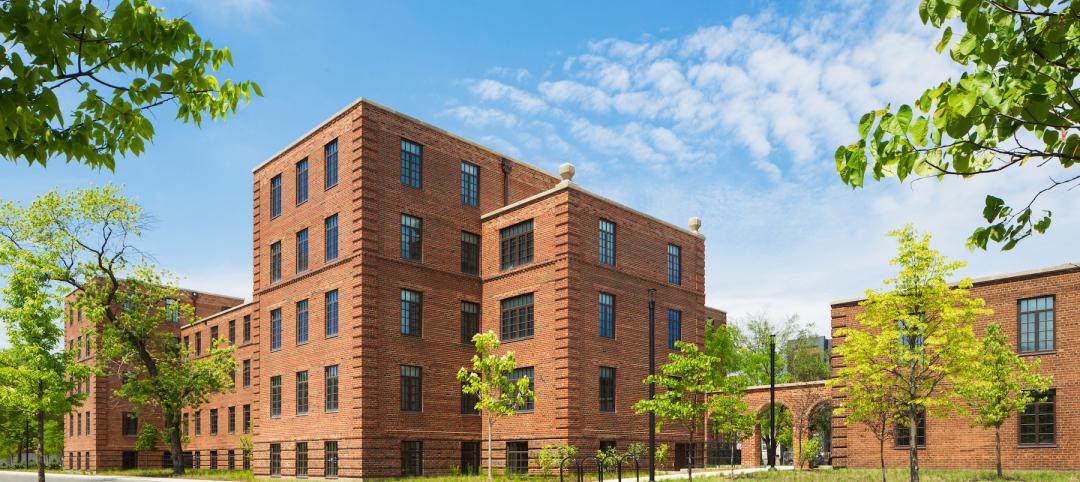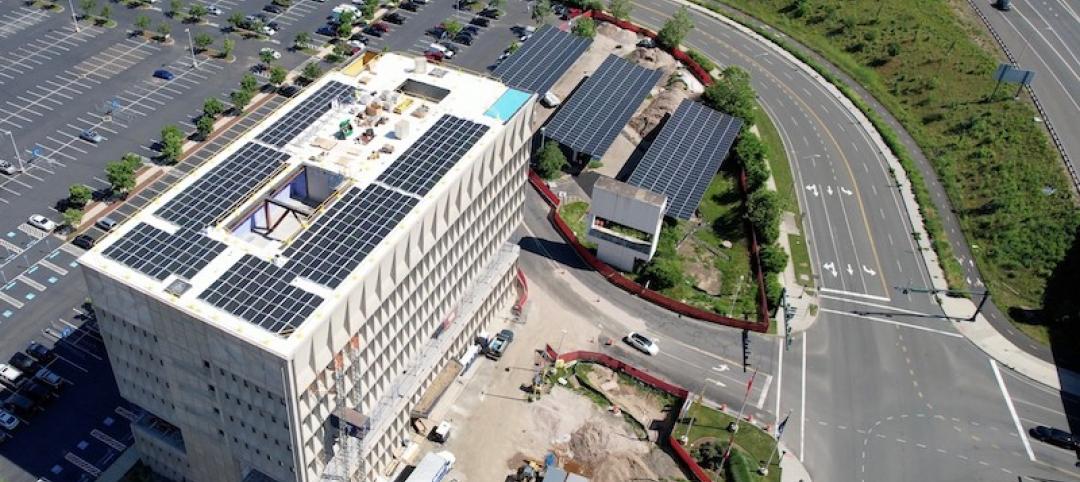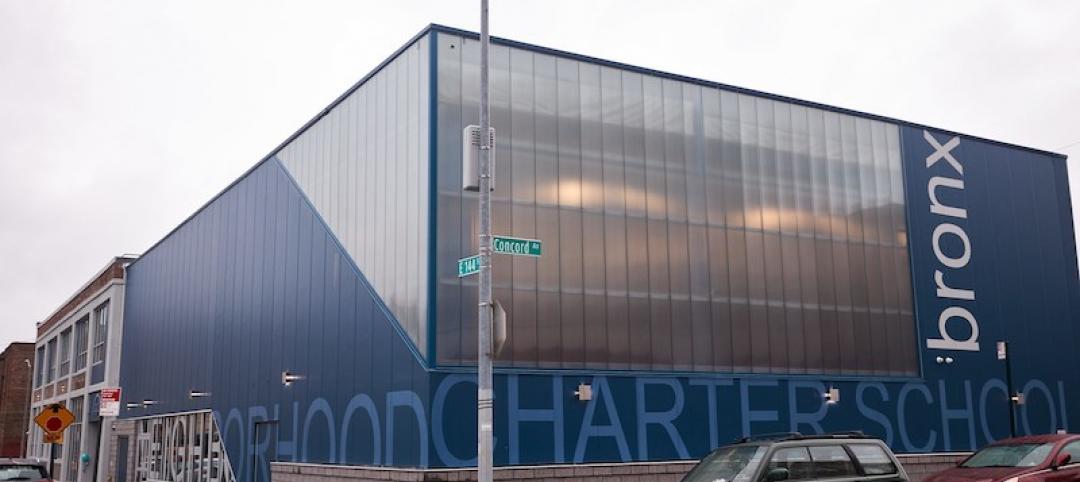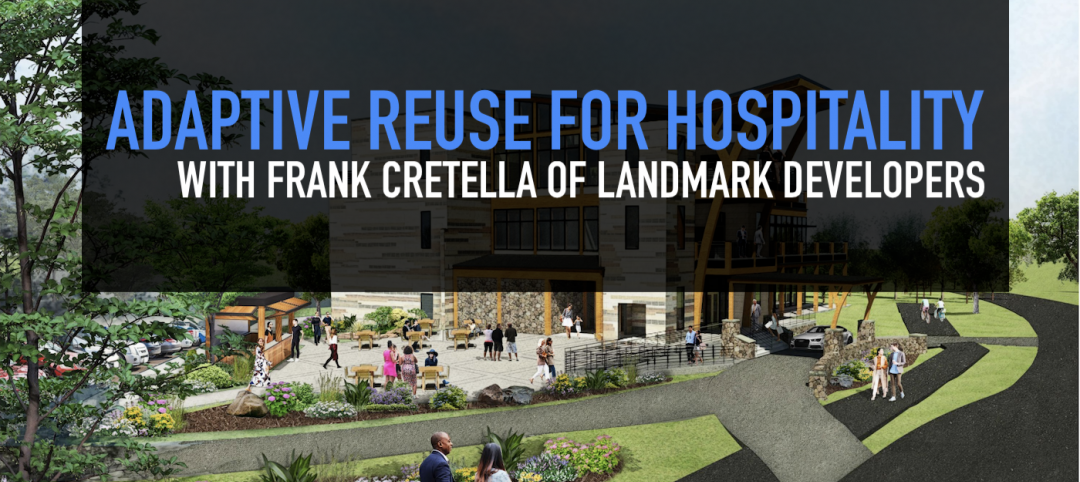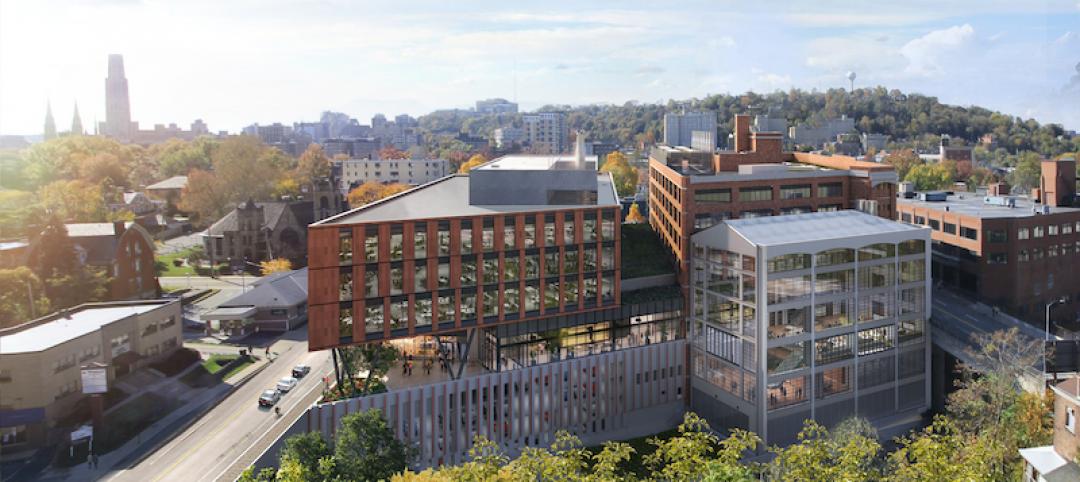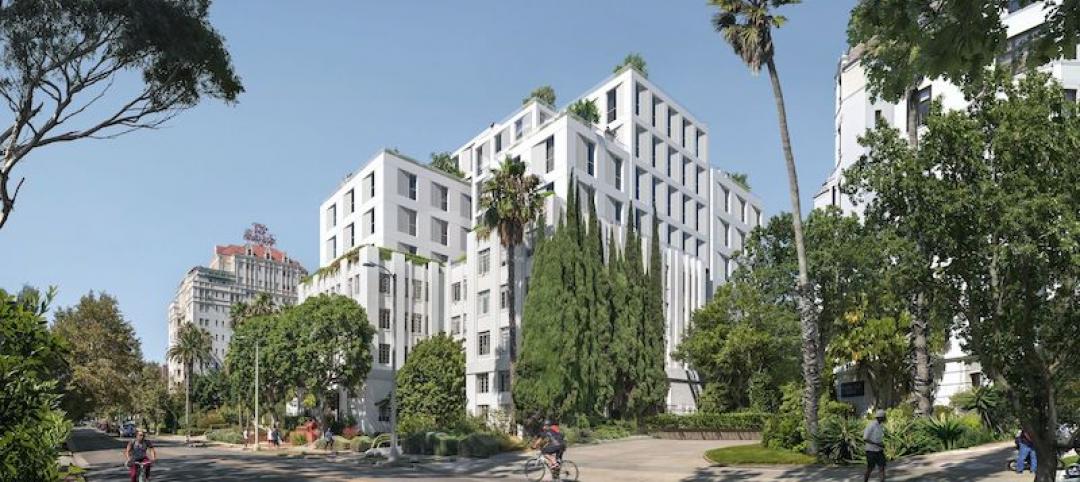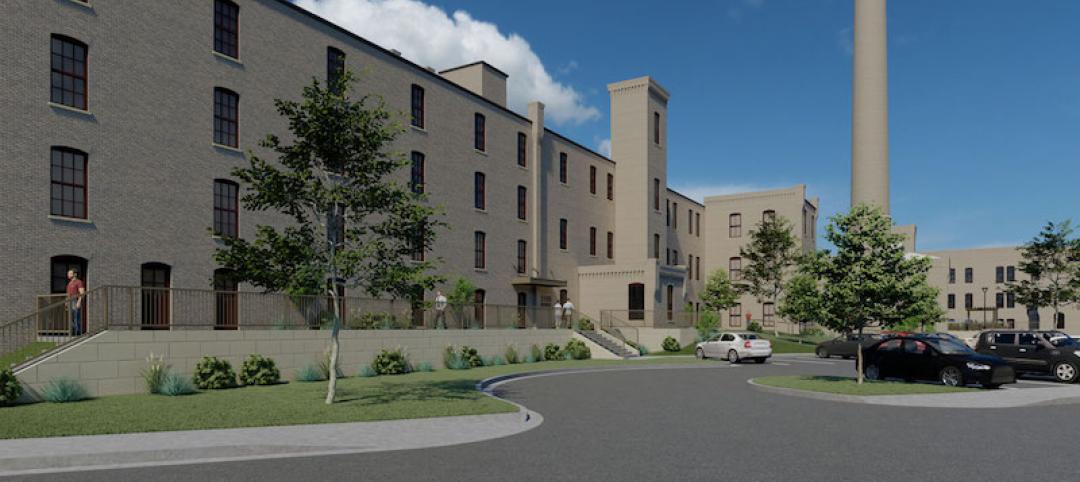The Detroit Foundation Hotel, an adaptive reuse and merging of two historic buildings, has emerged as one of the hotter downtown boutique spots serving the Motor City’s recovery.
The five-story, 100-key hotel, which opened on May 12, recently took home best honors in the Upscale category at the 37th annual Gold Key Awards for Excellence in Hospitality Design.
Detroit-based McIntosh Poris Associates, the lead designer on this $28 million project, converted the former Detroit Fire Department headquarters, which dates back to 1929, and the adjacent Pontchartrain Wine Cellars. Both were historically registered buildings.
The buildings’ existing facades were repaired, restored, or replaced, as were the firehouse’s decorative terra cotta panels with firehouse themes, like busts of firefighters, gryphons at a fire hydrant, and winged serpent-tailed figures flanking a shield proclaiming “DFD.”
The terra cotta-arched entrance of this Neoclassical hotel brings guests into a story-and-a-half space that once housed fire engines. On the first floor is a two-star-rated restaurant called The Apparatus Room and a private dining room
 The doors of the old firehouse were restored, and lead guests into a story-and-a-half area that used to contain fire engines and now features a restaurant and private dining room. Image: McIntosh Poris Architects
The doors of the old firehouse were restored, and lead guests into a story-and-a-half area that used to contain fire engines and now features a restaurant and private dining room. Image: McIntosh Poris Architects
Because of to the five-foot floor height difference between the two historic buildings, the architects varied the spaces throughout the hotel with 55 room types. Local artists who took part in the hotel renovation include Detroit Wallpaper Co. and Architectural Salvage Warehouse Detroit, according to the Detroit News.
The hotel’s amenities include complimentary Wi-Fi, a 24-hour fitness center, same-day laundry and dry cleaning, available valet service, complimentary bike rental, and a business center. This month, the high-end regional mall Somerset Collection opened a pop-up, lounge-style retail gallery at the hotel, featuring curated products such as furniture and luxury throws from the mall’s 180 stores.
 An interior view of The Apparatus, a two-star restaurant on the first floor of the Detroit Foundation Hotel. Image: McIntosh Poris Architects
An interior view of The Apparatus, a two-star restaurant on the first floor of the Detroit Foundation Hotel. Image: McIntosh Poris Architects
The opening of the Detroit Foundation Hotel reflects increasing room demand in line with this metro’s ongoing recovery and economic growth. Next fall, a 130-room Shinola Hotel, which Dan Gilbert’s Bedrock Real Estate is developing, is scheduled to open.
Year-to-date through September 2017, the metro Detroit hotel market posted a 0.4% increase in its occupancy rate and a 5.6% rise in its average daily rate. This resulted in an overall 6% increase in revenue per available room when compared to the same period in 2016.
The Building Team on the Detroit Foundation Hotel project included Aparium Hotel Group (owner), Simeone Deary Design Group (interior design, positioning/graphics, and branding), Sachse Construction (GC), MA Engineering (MEP); Structural Design, Inc. (SE), Giffels Webster (CE traffic engineer); Illuminart (lighting design); Soundscape (acoustical design); Kraemer Design Group (historic preservation consultant); Next Step Design (food service consultant); and Sorbis (low voltage design).
Related Stories
Adaptive Reuse | Dec 16, 2021
An adaptive reuse of a historic building in San Francisco was worth the wait
A five-year-long project included extensive restoration.
Adaptive Reuse | Nov 1, 2021
CallisonRTKL explores converting decommissioned cruise ships for housing
The rapid increase in cruise ship decommissioning during the last 18 months has created a unique opportunity to innovate and adapt these large ships.
Multifamily Housing | Oct 21, 2021
Chicago’s historic Lathrop public housing complex gets new life as mixed-income community
A revitalized New Deal–era public housing community in Chicago brings the Garden City movement of yesteryear into the 21st century.
Adaptive Reuse | Aug 25, 2021
The first net-zero hotel in the U.S. is nearing completion in Connecticut
Solar arrays will provide the electricity for the Hotel Marcel, whose name recalls the building’s original designer.
Adaptive Reuse | Aug 13, 2021
Developers are repositioning vacant space as charter schools
Transwestern is working with the National Alliance of Public Charter Schools to provide a turnkey solution.
Hotel Facilities | Jun 18, 2021
Adaptive reuse for hospitality, with Frank Cretella of Landmark Developers
In an exclusive interview for HorizonTV, Landmark Developers' President Frank Cretella talks about the firm's adaptive reuse projects for the hospitality sector. Cretella outlines his company's keys to success in hospitality development, including finding unique properties and creating memorable spaces.
Adaptive Reuse | Jun 2, 2021
An old Ford factory in Pittsburgh is being adapted to become a biomedical research facility
This is the latest step in the city’s post-industrial resurgence.
Adaptive Reuse | Apr 15, 2021
The Weekly Show, Apr 15, 2021: The ins and outs of adaptive reuse, and sensors for real-time construction monitoring
This week on The Weekly show, BD+C editors speak with AEC industry leaders from PBDW Architects and Wohlsen Construction about what makes adaptive reuse projects successful, and sensors for real-time monitoring of concrete construction.
Adaptive Reuse | Feb 24, 2021
Adaptive reuse project brings co-living space to Los Angeles’s Hancock Park
Lorcan O’Herlihy Architects is designing the project.
Adaptive Reuse | Feb 14, 2021
Three adaptive reuse projects will add housing in Wisconsin
Historic tax credits helped pave the way, but preservation required creative solutions.



